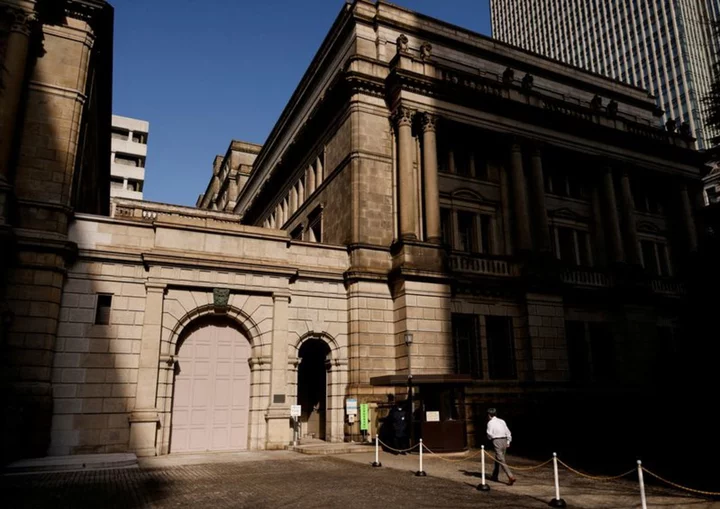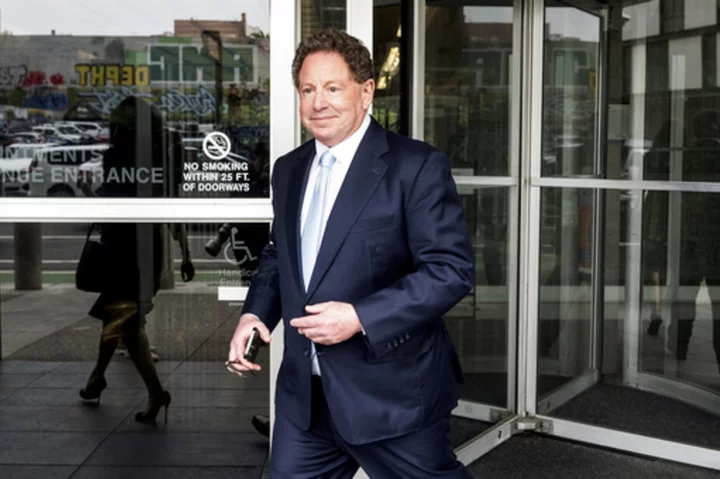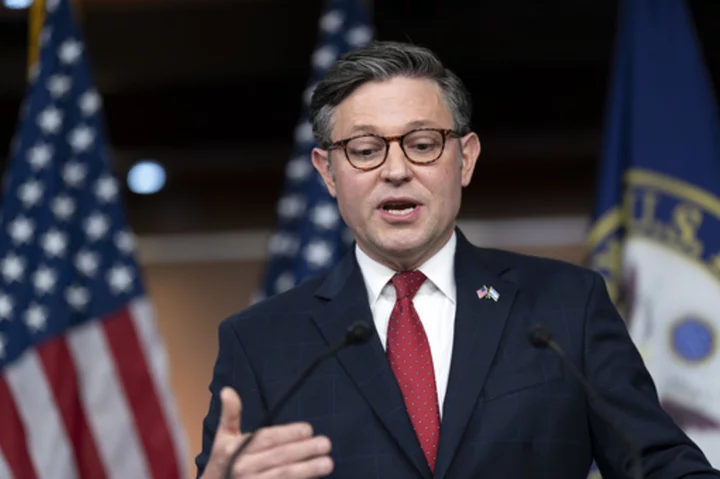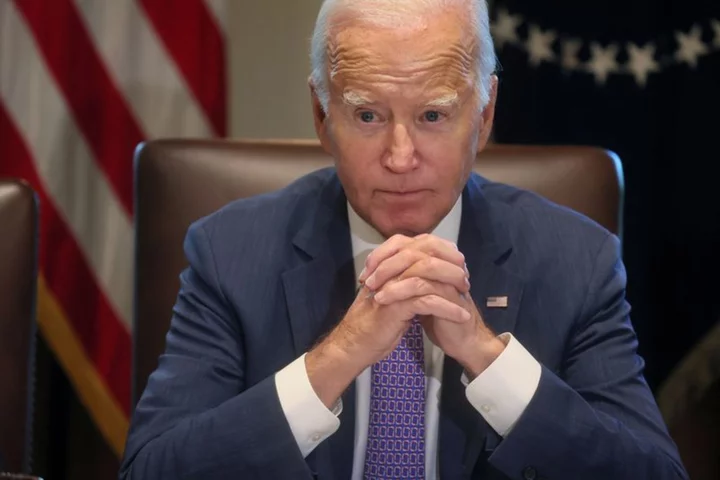By Leika Kihara
TOKYO The Bank of Japan's surprise decision last week to raise a cap on interest rates was partly driven by policymakers' growing worries ultra-loose monetary settings would spark a repeat of the bruising yen selloff that the economy saw last year.
The tweak to the BOJ's bond yield curve control (YCC) was the result of brainstorming sessions that came to a head in May, say sources familiar with the decision, just over a month after Kazuo Ueda succeeded his dovish predecessor Haruhiko Kuroda as the bank's chief.
Pressure from Prime Minister Fumio Kishida's government also played a part, suggesting that future policy tweaks will be driven not just by the inflation outlook but market moves - notably the yen, the sources said.
"Yen moves have been and will remain a very important factor shaping Japan's monetary policy," one of them said. "The BOJ made that point clear this time in a way unseen in the past."
The BOJ's decision shook markets on Friday and contrasted sharply with Ueda's more cautious comments in recent months about the dangers of retreating too quickly from accommodative Kuroda-era policies.
The focus on yen moves also means policymakers are now prioritising dealing with the side-effects of decades of massive monetary stimulus, such as Japan's yawning interest rate gap with economic peers that has pummelled its currency.
"Deep inside, Ueda probably feels the role of YCC has ended and is worried about its side-effects," said an official who has known Ueda for decades. "There's also a small but probable risk of inflation overshooting in Japan, which gave the BOJ reason to act."
This account of the BOJ's decision last week is based on conversations with over a dozen government officials, Kishida administration aides and sources with direct knowledge of the central bank's deliberations.
Most spoke on condition of anonymity as they were not authorised to speak publicly, or declined to comment on record due to the sensitivity of the matter.
Last week's move means the BOJ will likely refrain from further tweaks to YCC unless inflation perks up much faster than expected and keeps the 10-year yield elevated near the new 1% ceiling, the sources said.
More substantial moves toward policy normalisation, such as interest rate hikes, will come after close scrutiny of data for clues on next year's wage and inflation outlook, they said.
"It's clear the direction the BOJ is taking is towards an exit from easy policy," a third source said. "But it will take time, perhaps the entire five-year term for Ueda."
NEW PRIORITIES
The BOJ's policy decision last week signalled to investors that it would now allow the 10-year government bond yield to move closer to 1% before it intervenes.
Under YCC, first introduced in 2016, the central bank seeks to rev up stagnant consumer demand by keeping credit extremely ample, specifically by guiding short-term rates at -0.1% and the 10-year bond yield around 0%.
That policy runs smoothly when inflation and economic growth are subdued, but hits trouble when prices creep up, as they have over the past year, putting upward pressure on the 10-year bond yield and forcing the BOJ to ramp up bond buying.
The BOJ's relentless defence of its yield cap last year in particular drew the ire of Kishida's administration for fuelling sharp yen falls that inflated import costs and household expenses.
Since the yen hit a 23-year-low in September last year, the government has frequently prodded the BOJ to make its ultra-easy policy more flexible, in part to prevent low Japanese yields from stoking further currency declines, the sources said.
When asked about the role the government played in the BOJ's July decision, Chief Cabinet Secretary Hirokazu Matsuno told reporters on Thursday he was not aware of any government intervention. He also said the government "always communicates closely with the BOJ," but declined to comment on specifics.
A BOJ spokesperson did not respond to Reuters' request for comment.
As the yen renewed its fall in May, a handful of bureaucrats at the BOJ's elite monetary affairs department began brainstorming ideas on how to loosen the bank's grip on yields.
Their mission was to avoid a recurrence of last December, when the BOJ relented to market pressure and abruptly raised the yield cap - stoking speculation of an early end to easy policy.
The stakes are high, not just for Japan but global financial markets.
After three decades of extremely low interest rates, any sign of monetary tightening risks triggering a spike in the cost of funding Japan's huge public debt, and creating disruptive shifts in global asset allocation.
The key was therefore to allow rates to rise, without giving markets the impression the BOJ was moving towards policy normalisation.
That meant Ueda would need to pitch the move as aimed at prolonging the lifespan of YCC.
'BIT BY BIT'
The shift in thinking gained momentum at the BOJ's June policy meeting, but not enough to turn the tide.
While one board member called for an early review of YCC, most saw no need to take immediate action. Dovish board members like Seiji Adachi and Asahi Noguchi also publicly ruled out the chance of an early YCC tweak.
After that, however, Ueda and his deputies started dropping subtle hints of a tweak by drawing more attention to the side-effects of YCC and changing the way they described recent inflation.
Deputy Governor Ryozo Himino told Reuters in late June that inflation was stronger than previously projected and driven increasingly by domestic demand.
A week later, Deputy Governor Shinichi Uchida told the Nikkei newspaper the BOJ would decide whether to modify the yield cap by scrutinising "the impact it had on financial intermediation and market function."
The government kept applying pressure on the BOJ to pay more attention to currency market consequences of its policy.
Uchida, a career central banker who masterminded many of the BOJ's unconventional policies, liaised with the government and kept in close contact with Japan's top currency diplomat Masato Kanda.
As the yen slid to a two-week low near 142 to the dollar, Kanda suggested on July 21 that growing inflationary signs could prod the BOJ to soon tweak its approach to stimulus.
The BOJ made tweaks to YCC at the meeting held a week later, saying the move was aimed at mitigating side-effects such as "volatility in the exchange-rate market."
Deputy governor Uchida told reporters this week that preventing exchange-rate volatility would be among factors the central bank would emphasise in guiding policy.
Uchida's comments marked a rare foray by the BOJ into concerns about foreign exchange, which historically comes under the purview of the government.
"The BOJ already controls Japanese bond yields," said a fourth source. "It can't fully control yen moves but at the very least, it can be more mindful of their impact on the economy."
However the BOJ frames the move, some analysts see the July action as the first step towards policy normalisation. While the 0.5% cap for the 10-year yield remains in place, it is now obsolete with a new effective ceiling of 1.0% set last week.
The BOJ will now intervene only when the 10-year yield creeps near 1% - a level its staff don't think will be reached under current economic conditions.
"Last week's move made YCC quite a flexible scheme. It was a test case, or a preliminary exercise, toward future policy normalisation," said former BOJ board member Takahide Kiuchi.
"It's an example of how the BOJ will chip away at Kuroda's legacy stimulus bit by bit."
(Reporting by Leika Kihara; Additional reporting by Takaya Yamaguchi, Takahiko Wada, Kentaro Sugiyama, Yoshifumi Takemoto and Tetsushi Kajimoto; Editing by Sam Holmes)









